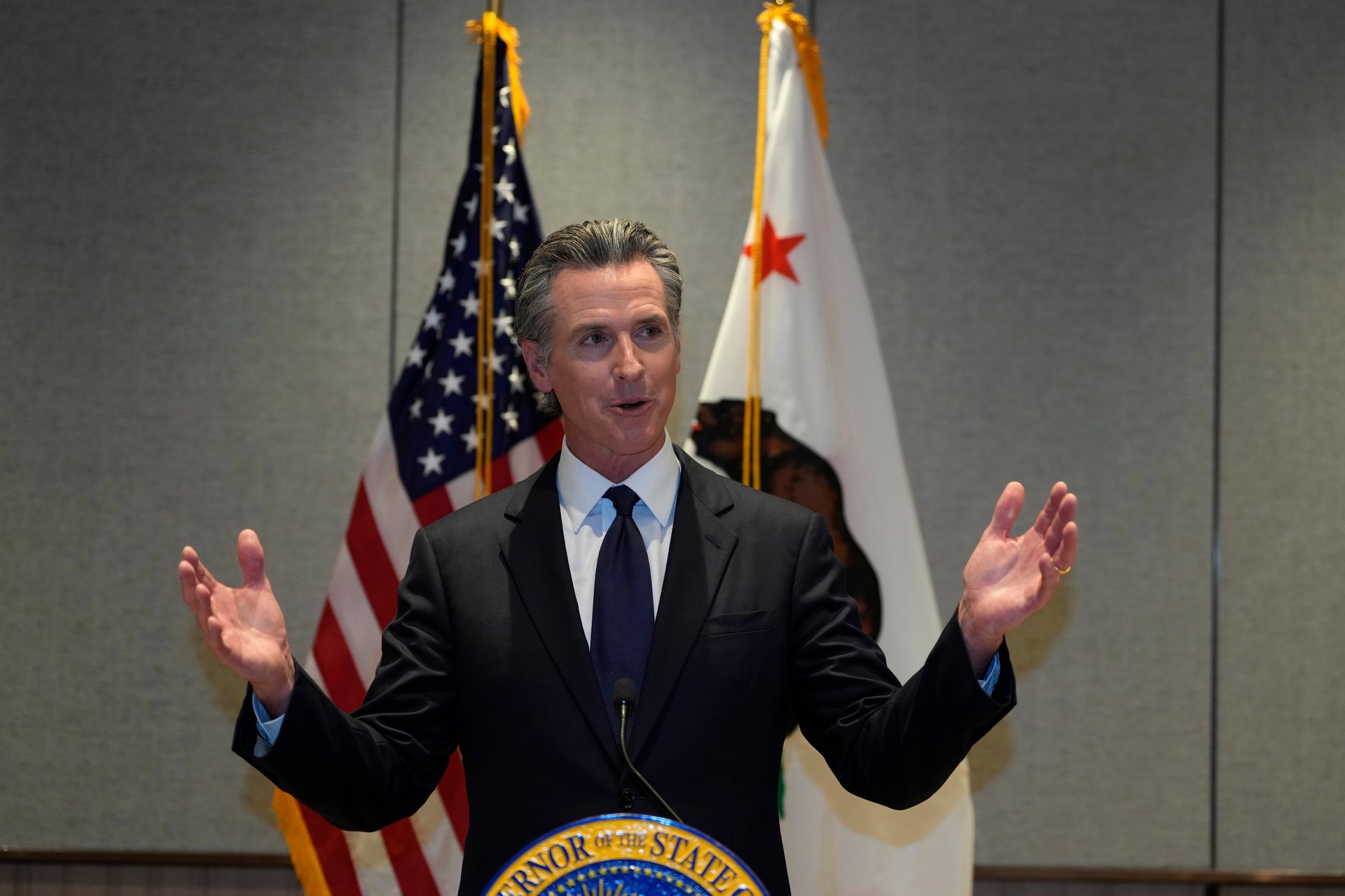A tax increase, LGBTQ+ youth protections and more sick leave highlight California's new laws in 2024
A new year brings new laws in California

SACRAMENTO, Calif. (AP) — Doctors in California who mail abortion pills to patients in other states will be protected from prosecution. Workers will receive more paid sick leave on the heels of a big year for labor. And companies can't fire employees for using marijuana outside of work.
Suggested Reading
These are among the hundreds of laws that take effect Jan. 1 in the nation's most populous state.
Related Content
Each year, California Gov. Gavin Newsom signs hundreds of laws passed by the state Legislature. Most take effect Jan. 1 the following year. But sometimes lawmakers will delay a law's effective date for a variety of reasons, including giving people more time to prepare for the new rules.
Some of the highest-profile bills passed by the Legislature in 2023 will not take effect until later. Fast food workers will get a minimum wage increase to $20 per hour on April 1. Health care workers are scheduled to see the first increases in their minimum wage on June 1. Laws requiring businesses to report their emissions and financial risks from climate change won't take effect until 2026.
A law banning people from carrying guns in most public places was blocked by a federal judge just days before it was set to take effect.
In 2023, the California Legislature passed 1,046 bills. Newsom signed 890 of those bills into law. He vetoed 156 bills, or 14.9%, according to statistics compiled by veteran lobbyist Chris Micheli.
Here is a look at some of the new laws Californians face:
Some drug tests don't determine if a person is high, but only if that person has used marijuana at all in recent days. California lawmakers thought it wasn't fair for companies to punish workers for failing these drug tests, especially since recreational marijuana has been legal in the state since 2016. A new law, which was passed in 2022 but takes effect this year, says companies can't punish workers for failing these types of drug tests. There are exceptions for construction workers and companies that must conduct drug tests as part of federal contracts.
California has a short-term disability program that pays people who cannot work because of a non-work related illness, injury or pregnancy. The program is funded by a 1.1% tax on wages. In the past, this tax only applied to wages below a certain amount, about $153,000 in 2023. But starting Jan. 1, a new law, which was passed in 2022 but takes effect this year, eliminates the wage cap. People who make more than $153,000 per year subsequently will pay a 1.1% tax on those wages.
Abortion is now illegal in 14 states after the U.S. Supreme Court overturned Roe v. Wade. But doctors and pharmacists in California who mail abortion pills to patients in those states will be shielded from prosecution or fines. The law bans bounty hunters or bail agents from apprehending California doctors and taking them to another state to stand trial. It even prohibits state-based social media companies, such as Facebook, from complying with out-of-state subpoenas, warrants or other requests for records to discover the identity of patients seeking abortion pills.
Workers in California will receive a minimum of five days of sick leave annually, instead of three, which they will accrue once they have been employed for 200 days. Labor advocates say the increase will curb the spread of disease by preventing employees from working when they are sick. But opponents say the law will be another financial burden for employers and claim some workers request sick leave when they are not ill.
Low-income Mexican residents who live within 45 miles (72 kilometers) of the California-Mexico border will be eligible for in-state tuition rates at participating Southern California community colleges under a new law signed by Newsom. The measure will lower a burden for students to receive education and training to help prepare them for the workforce, advocates say. It resembles another program in the state allowing up to 200 Nevada residents who live in certain areas near the California-Nevada border to receive in-state tuition rates at Lake Tahoe Community College.
Foster families will be required to demonstrate their ability to meet the health and safety needs of children regardless of sexual orientation or gender identity. It was one of several bills the Legislature passed this year to expand protections for LGBTQ+ youth. Newsom vetoed another high-profile bill that would have required courts to consider whether a parent affirms their child's gender identity in custody and visitation proceedings.
Religious institutions and nonprofit colleges in California can now turn their parking lots and other properties into affordable housing. The new law, which helps these institutions bypass most local permitting and environmental review rules, was among several initiatives attempting to address the homelessness crisis in California. Supporters of the law said it will serve as another tool to build much-needed housing in the state, but opponents said the law takes away local control over housing developments.
California lawmakers introduced a slew of bills last year aimed at addressing fentanyl overdoses, which are killing roughly 110 Californians each week. Only one measure cracking down on dealers reached Newsom’s desk. The new law increases penalties for dealers who possess more than 1 kilogram (2.2 pounds) of fentanyl. Newsom also signed bills requiring stadiums and amusement parks to stock overdose reversal drugs and community colleges and California State University campuses to provide fentanyl test strips.
___
Sophie Austin is a corps member for The Associated Press/Report for America Statehouse News Initiative. Report for America is a nonprofit national service program that places journalists in local newsrooms to report on undercovered issues. Follow Austin on X, the platform formerly known as Twitter: @sophieadanna